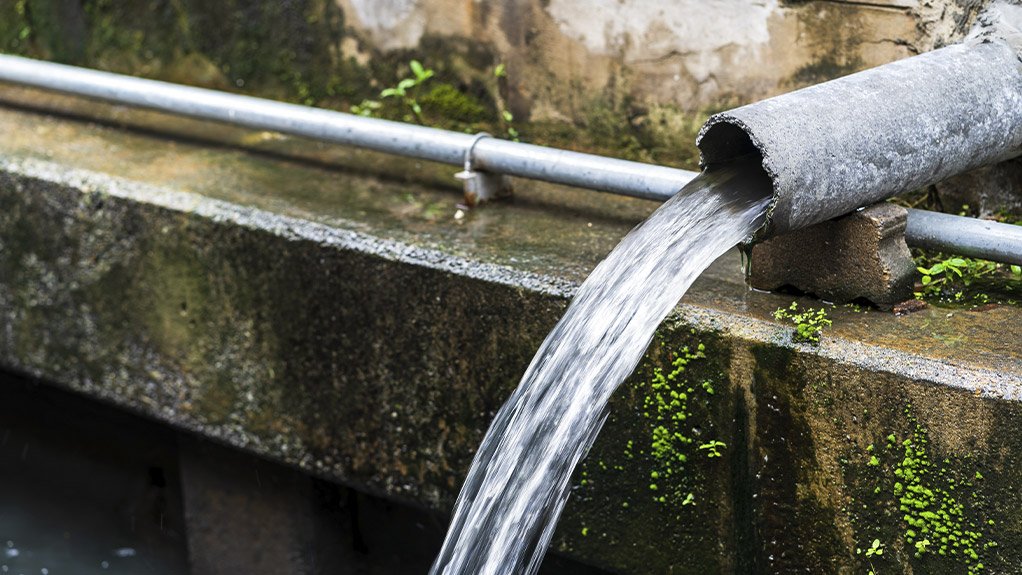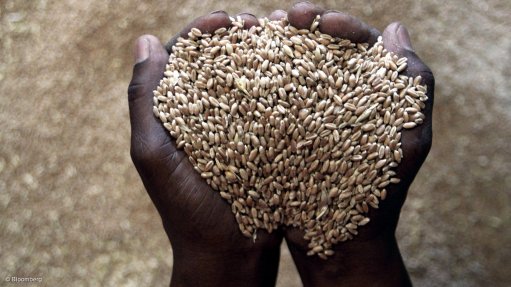Our next 100 years: Helping South Africa get smart about water with Digital Twins
By Sheilla De Carvalho
South Africa will not be able to meet its water needs in the next eight years unless drastic action is taken.
We lose 37% of our water supply through pipe leaks and bursts. Only a third of our main rivers can safely support human needs. And 14 million people – a quarter of the population – do not have access to safe sanitation.
The country’s water security is further threatened by unpredictable and increasingly severe climate events, growing populations, and burgeoning industries. Add a water-intensive, coal-based energy sector, and things could get a lot worse, a lot quicker.
Royal HaskoningDHV has been closely connected to South Africa’s water infrastructure since we started operating in the country in 1922.
For over 100 years, our engineers have designed and built significant water infrastructure, from dams to pipelines and treatment plants. They have advised on climate resilience strategies for governments in the SADC region.
We have an in-depth understanding of the state of South Africa’s water infrastructure, and we know that infrastructure is our biggest and most immediate challenge – but also our greatest opportunity to turn things around.
In deep waters
South Africa desperately needs new infrastructure to manage water better, either when there’s too much or too little. We need new water and wastewater infrastructure to give everyone access to clean drinking water and adequate sanitation. We should also be managing the infrastructure we have better and focusing on reducing consumption, recycling, and reusing water insofar as possible.
We know what needs to be done, but we lack the commitment and sense of urgency to prioritise this and get it done. However, we don’t have the luxury of time or money to focus solely on new infrastructure development; we need to maximise the use and benefits of our existing infrastructure. To that end, we can use new technologies to reverse-engineer what we already have. This way, we can make smarter maintenance and planning decisions so that our current infrastructure can serve us better, longer.
But first, data
If we are to meet our immediate demands, we must prioritise and optimise the maintenance of our water assets because it’s cheaper to maintain infrastructure than it is to repair it – and it’s cheaper to repair it than it is to replace it.
By taking better care of the water network, we can extend its lifespan and buy time to build new infrastructure and implement intelligent solutions that improve water security and increase the country’s resilience against extreme weather events such as floods and droughts.
The challenge comes in determining what action will have the greatest impact in the shortest amount of time. To do this, we need a complete, real-time overview of our water assets so that we can see where urgent attention is required. The problem is that there is no accurate overview of the state’s water assets. So, to get these insights, we need to go back to the basics: Data.
In gathering and recording data about our water assets, we can build a clear picture of the situation and then apply smart water technology to support advanced, automated decision-making.
The role of Digital Twins in water asset management
Using BIM, or Building Information Modelling, city planners and engineers can build Digital Twins, or replicas, of the water network to do scenario planning and test the impact of decisions in a virtual environment before implementing them in the real world.
In sharing data between physical and virtual environments, Digital Twins enable fast, informed decision-making, maintenance automation, and reduced human error. This creates transparency over the management of the water network and serves as a critical tool to solve some of South Africa’s biggest water challenges.
For example, Aquasuite, an AI-powered solution, provides decision-makers with actionable insight into their drinking water and wastewater infrastructure while optimising asset performance. It enables them to prioritise projects and allocate resources to the most significant issues first.
Although many believe these solutions are reserved for advanced economies, they are ideally suited to address humanitarian and infrastructure-related issues, such as those experienced in South Africa and more broadly in Africa.
Digital Twins, for example, help developing countries tackle some of the biggest hurdles hampering service delivery, including tight budgets and timelines, ageing and failing infrastructure, and a need for greater transparency and better cost control across the board.
For many of these countries, water and wastewater treatment is cost-prohibitive and the threat of water scarcity exacerbated by climate change looms large. Their best option is to optimise what they have and to use technology to identify areas of the network in urgent need of maintenance, repair, or replacement.
By mapping and identifying problem areas faster, authorities can better protect, maintain, and upgrade infrastructure while maximising returns and improving service delivery.
Measure twice, cut once
South Africa’s water challenges need urgent, focused action to minimise the impact on its people, economy, and environment.
We need to focus on what we can control, like better preparing for, responding to, and recovering from extreme weather events and optimising existing infrastructure to improve sanitation.
We need quality engineering and innovative, intelligent water solutions.
We need new mindsets, changed behaviour, and political will and support to tackle this crisis head-on.
We need change.
This is why we've evolved and shifted our focus as well – we're no longer just a team of expert engineers but a diverse and creative group of problem-solvers passionate about using data and digital innovations to improve the relationship between people and our planet.
There’s a lot to do to ensure our water security for the next 100 years.
The 'measure twice, cut once' proverb in carpentry teaches that measurements should be double-checked to ensure accuracy before cutting the wood. Before taking any action, we must carefully plan so that we do not waste time, energy, or resources correcting mistakes.
Innovative water technology lets us make the most of what we have today while building a better tomorrow.
Contact Information
Contact Sheilla de Carvalho about solutions to water management challenges
Website: https://global.royalhaskoningdhv.com/countries/southern-africa
Contact number: +27 87 352 1500
Comments
Press Office
Announcements
What's On
Subscribe to improve your user experience...
Option 1 (equivalent of R125 a month):
Receive a weekly copy of Creamer Media's Engineering News & Mining Weekly magazine
(print copy for those in South Africa and e-magazine for those outside of South Africa)
Receive daily email newsletters
Access to full search results
Access archive of magazine back copies
Access to Projects in Progress
Access to ONE Research Report of your choice in PDF format
Option 2 (equivalent of R375 a month):
All benefits from Option 1
PLUS
Access to Creamer Media's Research Channel Africa for ALL Research Reports, in PDF format, on various industrial and mining sectors
including Electricity; Water; Energy Transition; Hydrogen; Roads, Rail and Ports; Coal; Gold; Platinum; Battery Metals; etc.
Already a subscriber?
Forgotten your password?
Receive weekly copy of Creamer Media's Engineering News & Mining Weekly magazine (print copy for those in South Africa and e-magazine for those outside of South Africa)
➕
Recieve daily email newsletters
➕
Access to full search results
➕
Access archive of magazine back copies
➕
Access to Projects in Progress
➕
Access to ONE Research Report of your choice in PDF format
RESEARCH CHANNEL AFRICA
R4500 (equivalent of R375 a month)
SUBSCRIBEAll benefits from Option 1
➕
Access to Creamer Media's Research Channel Africa for ALL Research Reports on various industrial and mining sectors, in PDF format, including on:
Electricity
➕
Water
➕
Energy Transition
➕
Hydrogen
➕
Roads, Rail and Ports
➕
Coal
➕
Gold
➕
Platinum
➕
Battery Metals
➕
etc.
Receive all benefits from Option 1 or Option 2 delivered to numerous people at your company
➕
Multiple User names and Passwords for simultaneous log-ins
➕
Intranet integration access to all in your organisation




















